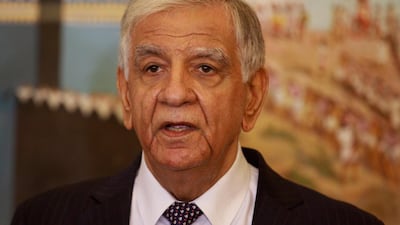Iraq plans to snuff out gas flared from its southern oil-producing fields by 2021 as it looks to free up some of the fuel for export, its oil minister said on Saturday.
“By the middle of this year, we’re heading definitely to conclude three giant contracts with international gas companies to utilise the gas in all southern areas [to the tune of] 950 million scf [standard cubic feet] covering Basra, Nassriya and Missan. By implementing this, by end of 2021, Iraq willl reach zero flaring definitely,” Jabbar Al Luaibi said at an energy conference in Abu Dhabi.
The World Bank estimates around 16 billion cubic metres of gas from Iraqi fields was flared in 2015, costing the economy billions in lost revenue. Power outages in the war-torn country, particularly in the summer when temperatures often reach 50°C, have led to protests against the government.
The National reported in November that Iraq had added around 400 megawatts to its power grid from the first wave of flared gas recovery last year.
Iraq will have a surplus of around “4,000 million cubic feet to be freed up for exports”, when oil production touches seven million barrels per day (bpd) “over the next few years", said Mr Al Luaibi.
_____________
Read more:
British-Kurdish MP quits controversial oil role as he lands new ministerial post
Iraq deal with Exxon still not agreed
_____________
The BP Statistical Review of World Energy estimates Iraq to have proven have proven gas reserves of around 130 trillion cubic feet, much of it associated with oil production. However, the Opec producer has seen development of its gas industry crippled due to a lack of infrastructure as a result of years of war and sanctions.
Iraq, which insists it will remain compliant with Opec output curbs to prop up the price of oil, said its output had inched close to five million barrels per day (bpd).
Opec's latest monthly oil market report said the Middle East's third-largest producer registered an output of 4.360 million bpd, according to its official sources and 4.396 million bpd according to secondary sources.
Iraq has also improved export capabilities from the south of the country to offset any disruption to crude exports from Iraqi Kurdistan, said Mr Al Luaibi. Political instability from the fallout over the Kurdish referendum in October more than halved oil flow from the 600,000 bpd Ceyhan pipeline, and spurred the price of Brent to around $64 per barrel.
"Our export capabilities increased in the south of the country to 4.6 million bpd," said Mr Al Luaibi.
"That will offset the stopping of export from the north, we did a lot of work with the gas utilisation as a priority," he added.
The Iraqi oil ministry has yet to find stakeholders to replace Anglo-Dutch oil major Shell to undertake development at Majnoon, one of its largest oilfields, he added. The National has reported that Petronas, which also held an operating stake in the field, had decided to quit the project by June this year.


